Welcome to the PGAS Applications Workshop.
Program
- 2:00 - 2:05 Opening
- 2:05 - 2:50 Katherine Yelick
Keynote Speaker
PGAS: What, Where, and Why?
(Presentation)
- 2:50 - 3:00 Jacob Hemstad, Ulf Hanebutte, Ben Harshbarger and Brad Chamberlain
A Study of the Bucket-Exchange Pattern in the PGAS Model Using the
ISx Integer Sort Mini-Application
(Presentation,
Extended Abstract)
- 3:00 - 3:30 Break
- 3:30 - 3:50 Anton Shterenlikht, Lee Margetts, Luis Cebamanos and Jose David Arregui-Mena
Multi-scale CAFE framework for simulating fracture in heterogeneous materials
implemented in Fortran coarrays and MPI
(Presentation)
- 3:50 - 4:10 Khaled Hamidouche, Jie Zhang, Karen Tomko and Dhabaleswar K. Panda
OpenSHMEM NonBlocking Data Movement Operations with MVAPICH2-X: Early
Experiences
(Presentation)
- 4:10 - 4:30 Hongzhang Shan, Weiqun Zhang, Yili Zheng, Samuel Williams, Stephane Ethier,
Bei Wang and Zhengji Zhao
Experiences of Applying One-Sided Communication to Nearest-Neighbor
Communication
(Presentation)
- 4:30 - 4:50 Riyaz Haque and David Richards
Optimizing PGAS overhead in a multi-locale Chapel implementation of CoMD
(Presentation)
- 4:50 - 5:00 Bruce Palmer
Application of PGAS Programming to Power Grid Simulation
(Presentation)
- 5:00 - 5:30 Brad Chamberlain
Panel Chair
Panel Discussion
Panelists:
- William Carlson - IDA Center for Computing Sciences
- Evangelos Georganas - University of California Berkeley
- Bert de Jong - Lawrence Berkeley National Laboratory
- Damian Rouson - Sourcery Institute
- Min Si - Argonne National Laboratory
Important dates
- Submission Deadline:
July 31, 2016 August 13, 2016 (final extension)
- Author Notification: September 9, 2016
- Camera Ready: October 1, 2016
- Workshop Date: November 14, 2016 (Room 251-B)
Summary
Keynote Speaker
PGAS: What, Where, and Why?
ISx Integer Sort Mini-Application
(Presentation, Extended Abstract)
implemented in Fortran coarrays and MPI
(Presentation)
Experiences
(Presentation)
Bei Wang and Zhengji Zhao
Communication
(Presentation)
(Presentation)
(Presentation)
Panel Discussion
Panelists:
- William Carlson - IDA Center for Computing Sciences
- Evangelos Georganas - University of California Berkeley
- Bert de Jong - Lawrence Berkeley National Laboratory
- Damian Rouson - Sourcery Institute
- Min Si - Argonne National Laboratory
Important dates
- Submission Deadline:
July 31, 2016August 13, 2016 (final extension) - Author Notification: September 9, 2016
- Camera Ready: October 1, 2016
- Workshop Date: November 14, 2016 (Room 251-B)
Summary
The race towards Exascale computing is on, and a lot of stress is put on researchers to break the boundaries of productivity and efficiency imposed by traditional programming models. Partitioned Global Address Space (PGAS) languages are an effective alternative, and the most promising path towards sustainable programming environments for exascale machines. Languages such as UPC, Fortran, Chapel, and X10 are now more widely available than ever, thanks to increased support from vendors and open-source communities. PGAS models also take the form of meta-languages and libraries, such as Unified Parallel C++ (UPC++), Co-Array C++, OpenSHMEM, MPI-3 and Global Arrays. These have the benefit of being integrated with existing languages, simplifying the learning curve for existing programmers.
The increasing availability of PGAS compilers and support software opens up more opportunities than ever for researchers and developers to test new strategies and port applications to more demanding requirements.
Scope and Aims
The scope of the PAW workshop is to provide a forum for exhibiting case studies of PGAS programming models in the context of real-world applications as a means of better understanding practical applications of PGAS technologies. We encourage the submission of papers and talks detailing practical PGAS applications, including characterizations of scalability and performance, of expressiveness and programmability, as well as any downsides or areas for improvement in existing PGAS models. In addition to informing other application programmers about the potential that is available through PGAS programming, the workshop is designed to communicate these experiences to compiler vendors, library developers, and system architects in order to achieve broader support for PGAS programming across the community.
Topics
Topics include, but are not limited to:
- Novel application development using the PGAS model
- Real-world examples demonstrating performance, compiler optimization, error checking, and reduced software complexity.
- Performance evaluation of applications running under PGAS
- Algorithmic models enabled by PGAS model
- Compiler and runtime environments
- Libraries using/supporting PGAS and applications
- Benefits of hardware abstraction and data locality on algorithm implementation.
Submissions
Submissions are solicited in two categories:
Full-length papers will be published in the workshop proceedings in cooperation with SIGHPC. Submitted papers must be original work that has not appeared in and is not under consideration for another conference or a journal. Papers shall not exceed eight (8) pages including text, appendices, and figures. References are not included.
Extended abstracts will be evaluated separately and are not intended to prevent the work from being submitted to other forums for publication. Extended abstracts shall not exceed four (4) pages.
Organization
Workshop Chair
Karla Morris - Sandia National Laboratory
Organizing Committee
- Katherine A. Yelick - Lawrence Berkeley National Laboratory
- Yili Zheng - Google
- Salvatore Filippone - Cranfield University
- Bradford L. Chamberlain - Cray Inc.
- Bill Long - Cray Inc.
Program Committee Chair
Bill Long - Cray Inc.
Program Committee
- Gheorghe Almasi - IBM
- Bradford L. Chamberlain - Cray Inc.
- Daniel Chavarría - Pacific Northwest National Laboratory
- Bert de Jong - Lawrence Berkeley National Laboratory
- Salvatore Filippone - Cranfield University
- Tarek El-Ghazawi - George Washington University
- David Grove - IBM
- Jeff Hammond - Intel
- Oscar Hernandez - Oak Ridge National Laboratory
- Amir Kamil - University of Michigan
- John Mellor-Crummey - Rice University
- Karla Morris - Sandia National Laboratory
- Nick Park - DoD
- Damian W. I. Rouson - Sourcery Institute
- Lauren Smith - DoD
- Katherine A. Yelick - Lawrence Berkeley National Laboratory
- Yili Zheng - Google
Contact
In case of questions please email us at: paw16@cranfield.ac.uk


